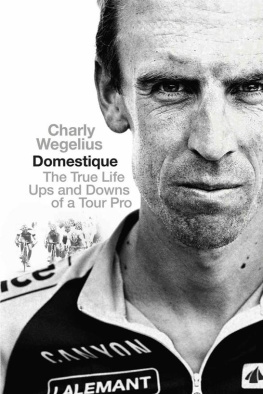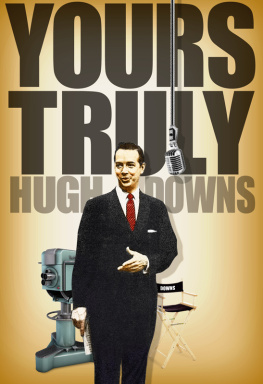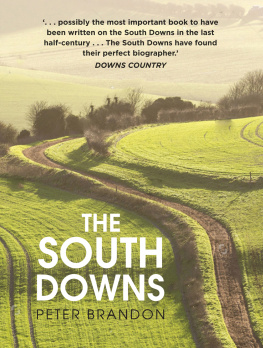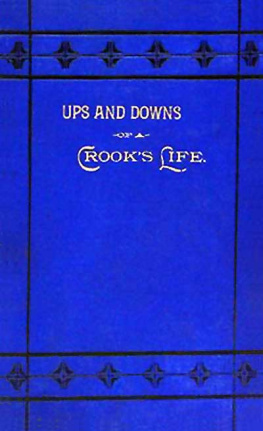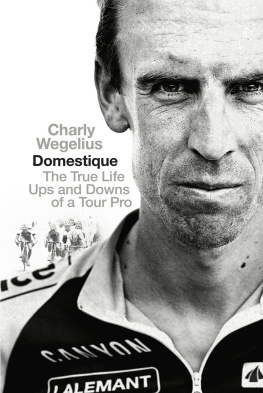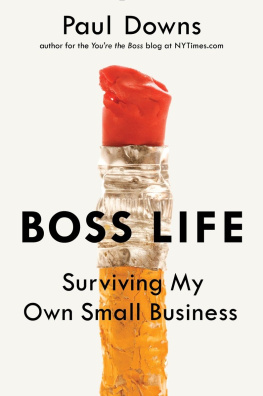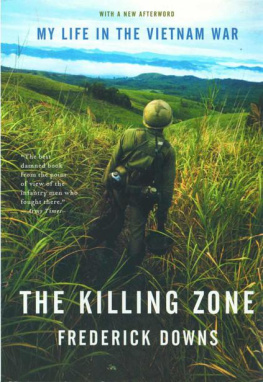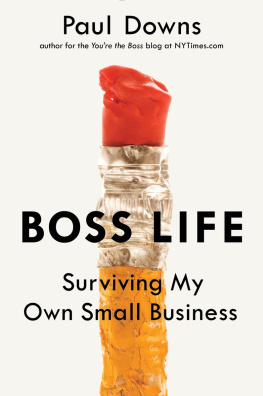Charly Wegelius - Domestique: The Real-life Ups and Downs of a Tour Pro
Here you can read online Charly Wegelius - Domestique: The Real-life Ups and Downs of a Tour Pro full text of the book (entire story) in english for free. Download pdf and epub, get meaning, cover and reviews about this ebook. year: 2013, publisher: Ebury Publishing, genre: Science fiction. Description of the work, (preface) as well as reviews are available. Best literature library LitArk.com created for fans of good reading and offers a wide selection of genres:
Romance novel
Science fiction
Adventure
Detective
Science
History
Home and family
Prose
Art
Politics
Computer
Non-fiction
Religion
Business
Children
Humor
Choose a favorite category and find really read worthwhile books. Enjoy immersion in the world of imagination, feel the emotions of the characters or learn something new for yourself, make an fascinating discovery.
- Book:Domestique: The Real-life Ups and Downs of a Tour Pro
- Author:
- Publisher:Ebury Publishing
- Genre:
- Year:2013
- Rating:3 / 5
- Favourites:Add to favourites
- Your mark:
- 60
- 1
- 2
- 3
- 4
- 5
Domestique: The Real-life Ups and Downs of a Tour Pro: summary, description and annotation
We offer to read an annotation, description, summary or preface (depends on what the author of the book "Domestique: The Real-life Ups and Downs of a Tour Pro" wrote himself). If you haven't found the necessary information about the book — write in the comments, we will try to find it.
Domestique: The Real-life Ups and Downs of a Tour Pro — read online for free the complete book (whole text) full work
Below is the text of the book, divided by pages. System saving the place of the last page read, allows you to conveniently read the book "Domestique: The Real-life Ups and Downs of a Tour Pro" online for free, without having to search again every time where you left off. Put a bookmark, and you can go to the page where you finished reading at any time.
Font size:
Interval:
Bookmark:
Contents
For 11 years I was a professional cyclist, competing in the hardest and greatest races on Earth. I was in demand from the worlds best teams, a well-paid elite athlete. But I never won a race. I was the hired help.
When my mum dropped me off in a small French town aged 17, I was full of determination to be a professional cyclist, but I was completely green. I went from mowing the team managers lawn to winning every amateur race I entered. Then I turned pro and realised I hated the responsibility and pressure of chasing victory. And thats when I became a domestique.
I learned to take that hurt and give it everything I had to give, all for someone elses win. When the order came in to ride it was I pushed out with the hardest rhythm I could, dragging the group faster and faster, until my whole body screamed with pain. There were times I rode myself to a standstill, clutching the barrier metres from the line, as the lead group shot past. But thats what made me so good at my job.
As my career took off, I started looking at the fans lining the route, cheering us like heroes. The passion for cycling oozed off them, but they couldnt know what it was really like. They didnt see the terrible hotels, the crazy egos or all the shit that goes with great expectations. Well, this is how it is
Charly Wegelius was one of Britains most distinguished and respected professional cyclists. He grew up in York, and went on to race for some of cyclings best teams, including Mapei, the worlds most successful ever team. In his 11-year career he competed in a remarkable 14 Grand Tours (including three Tours de France). Charly now works as a directeur sportif for the Garmin-Sharp team.
Co-writer Tom Southam is a former professional racing cyclist. He raced alongside Charly Wegelius for three years in the Italian professional peleton, and twice rode the professional Road Race Championships as a teamate of Wegelius. He now works as a writer and contributes to major cycling publications in the UK and internationally.
Downs of a Tour Cyclist
and Tom Southam

Like most normal human beings I didnt set out in life thinking that one day I would be writing about it in a book. Some people might, but not me. Even when the possibility of writing a book came my way I didnt know at first if I was the person to do it. I didnt have anything to confess, but I had things to say. The book had to be right.
By July 2011, when this book first started to come to life, I had a clear idea of what I wanted to write about: life inside the professional peloton. However, the events of the past two years have made this vision very hard to stick to without devoting a disproportionate amount of space to a topic that played a very marginal part in my life.
As a professional cyclist whose career ran from 2000 to 2011 I lived through a turbulent time for the sport full to bursting with scandals, drug raids, confessions, accusations, revelations and all the difficulties that came with a doping culture that was deeply embedded in the sport.
It is therefore a bitter-sweet taste to know that in 2013 there is enough interest in the sport that I love that a guy like me can write a book for an enthusiastic audience, yet at the same time have to be at pains to explain that the book like my career does not contain any exciting doping stories, nor does it attempt to.
Its not to say that a fair amount of doping wasnt going on around me, Im sure. Anyone who feels the need can go and look up the names of the people I rode for and with and find numerous doping violations against their names. I am not trying to deny that. I have, however, chosen not to focus on those facts.
I have remained true to my vision of the book. This book, the one that I wanted to write, is focused on something else: an entire cycling career. Yes, doping makes an appearance or two, there is no way it couldnt, but I would like to feel that its small appearances in this book reflect just how minor a part it really played in my life as a cyclist. There was simply much more to be getting on with, so much more to the job and so much other stuff for me to be worrying about.
The role that I played, that of a domestique, a foot soldier in the sport, was often a thankless task that kept me perched precariously between the gutter and the stars for eleven long working years. It is this story alone that I feel I am qualified to tell, through the life experiences that I have had.
I can tell you that I have spared some people in telling this story in this form. Some of them I have no doubt unwittingly protected in small ways. If I have done so, their absence only serves to somehow repay some act of human decency that they themselves have shown to me. There are others who showed the opposite of decency to me, whom I have been forced to protect by the lawyers-who-know-whats-good-for-me, and to them I say: You got lucky, bastards.
Whatever the case, I can tell you in all honesty that I spared very little of myself in telling this story, and that, after all, is all I can really do.
Charly Wegelius, February 2013
Dulce bellum inexpertis
(War is sweet to those who do not fight)
G ERARD D IDIER E RASMUS
This book begins at almost the very moment I met Charly Wegelius for the first time the 1999 World Road Race Championships, in Verona.
I was fascinated by Charly when I first met him in Mike Taylors room of the Hotel Antico Termine. I knew that on that very day Charly had signed his first professional contract, and when I looked at him all I could do was wonder, How did you do that?
When I saw Charly in the flesh that day, I was seeing him the way that thousands of people have seen him from the roadside over the years: as an object of wonder, of athleticism and of professionalism on the racing bike. My mind at the time like his once had been was obsessed with the idea of being a professional cyclist. I aspired to being a racer so much and, through growing up in the UK in the eighties, I had been so far removed from that world that professional cyclists seemed like gods to me.
Here was a man who saw cycling the same way I did, who came from where I came from, and who somehow had made it all work.
He had crossed the divide from where I was to where I dreamed of being. Four years my senior and with his professional contract in his back pocket, Charly Wegelius seemed like a man who had achieved the near impossible.
I followed Charlys footsteps into the professional peloton in my own ragged time, and over the years we became friends. Our paths diverged abruptly, however, when, after only three years in the peloton, I upped and walked away from the world of European professional cycling. I had found that it was nothing like I imagined it would be, and the shock of that realisation sent me reeling.
We remained friends, though, as Charly carried on with his increasingly successful racing career and I went off to learn how to write, and our paths crossed professionally again, but in a vastly different way: the opportunity eventually arose to write this story together. It was a story I knew well because, just like Kurt Vonnegut sitting next to Billy Pilgrim in the latrines in his masterpiece Slaughterhouse Five, at many times during the events in this book I too was right there.
I was there in Verona when Charly was the toast of British Cycling, and witnessed the awkwardness when he arrived at the Worlds in Plouay a year later. I was quite often there staying in his spare room when he came home to his inhospitable apartment and empty fridge while he rode for De Nardi, and I was right there, too, swapping turns when he made the biggest mistake he would make in his racing career.
Next pageFont size:
Interval:
Bookmark:
Similar books «Domestique: The Real-life Ups and Downs of a Tour Pro»
Look at similar books to Domestique: The Real-life Ups and Downs of a Tour Pro. We have selected literature similar in name and meaning in the hope of providing readers with more options to find new, interesting, not yet read works.
Discussion, reviews of the book Domestique: The Real-life Ups and Downs of a Tour Pro and just readers' own opinions. Leave your comments, write what you think about the work, its meaning or the main characters. Specify what exactly you liked and what you didn't like, and why you think so.

